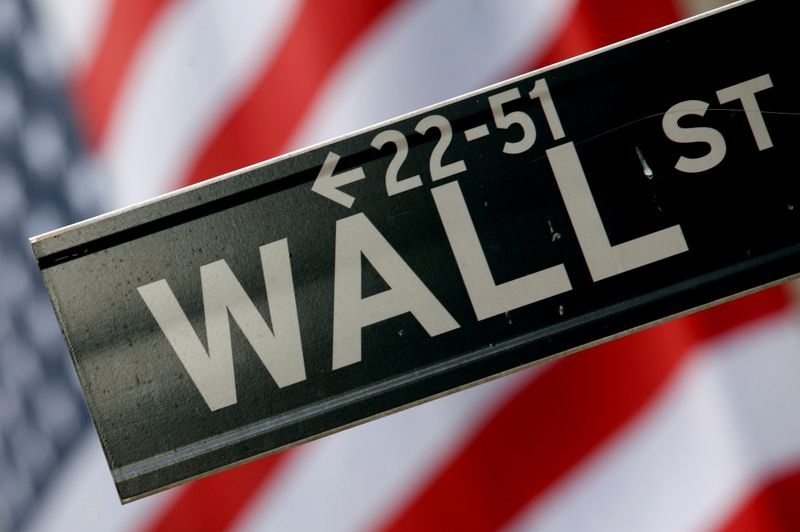Street Calls of the Week
Investing.com-- The S&P 500 rose sharply Tuesday after U.S. consumer confidence rebounded following a five-month slump, cooling fears about the economy just days after President President Donald Trump postponed plans to impose steep trade tariffs on the European Union.
At 4:00 p.m. ET (20:00 GMT), the Dow Jones Industrial Average rose 740 points, or 1.8%, the S&P 500 index gained 2.1%, and the NASDAQ Composite advanced 2.5%.
Wall Street was closed on Monday on account of the Memorial Day holiday.
Consumer confidence jumps by the most in four years
Consumer confidence saw a strong rebound in May, ending a five-month decline, largely driven by renewed optimism surrounding economic conditions and boosted further by the U.S.-China trade deal announced mid-month.
According to The Conference Board, the Consumer Confidence Index surged 12.3 points to 98.0, surpassing expectations of just 87.1. The sharp rise was fueled by improvements in both consumers’ short-term outlook—reflected in the Expectations Index jumping 17.4 points to 72.8—and perceptions of current conditions, with the Present Situation Index up 4.8 points to 135.9.
Senior Economist Stephanie Guichard noted that confidence was already improving ahead of the trade deal but accelerated in its aftermath, highlighting the deal’s positive impact on consumer sentiment.
Tech rallies as Nvidia (NASDAQ:NVDA)’s earnings loom large; Tesla (NASDAQ:TSLA), Coreweave jump
Big tech stocks led market higher, with Nvidia rising more than 3% ahead of its quarterly results due Wednesday after the market closes.
The company is considered a bellwether for global AI demand, especially in the chipmaking sector, and is sitting on a massive valuation spike over the past two years on this position.
Nvidia is expected to report bumper earnings, especially as Wall Street’s so-called AI Hyperscalers– its biggest customers– continued to spend heavily on AI over the past three months.
Elsewhere, Southwest Airlines (NYSE:LUV) stock rose after the carrier announced it will charge customers $35 for one checked bag and $45 for the second, bringing an end to its free luggage policy.
Salesforce (NYSE:CRM) stock gained after the Wall Street Journal reported that the software company is nearing an agreement to acquire Informatica in a deal valued at approximately $8 billion.
The quarterly earnings season is largely at an end, with more than 95% of S&P 500 companies having already reported, with almost 78% having surpassed analyst expectations, according to FactSet.
Numbers from IT service management company Okta (NASDAQ:OKTA) are due after the bell Tuesday.
Elsewhere, Tesla climbed more than 6% after CEO Elon Musk said he would be "super focused on /xAI and Tesla (plus Starship launch next week), as we have critical technologies rolling out.”
The remarks helped further restore confidence in Musk’s leadership amid concerns that his role within the Trump administration was taking too much of his focus.
CoreWeave Inc (NASDAQ:CRWV) rose more than 20%, shrugging off a downgrade from Barclays (LON:BARC) to equalweight, citing concerns about limited short-term upside given the stock’s post-IPO run up.
Trump postpones 50% EU tariffs to July
Sentiment received a boost after Trump stated late Sunday that he had agreed to postpone his recently proposed 50% tariffs on goods from the EU to July 9, following a call with EU President Ursula von der Leyen.
Trump also said that his administration will begin trade talks in earnest with the EU, while Von Der Leyen also flagged improving relations with Washington.
The development offered some relief to markets, which were rattled on Friday by Trump threatening steep tariffs on the EU, along with Apple (NASDAQ:AAPL).
This resulted in a losing week on Wall Street, with all three major indices falling more than 2% over the course of last week.
The July 9 deadline is also around when Trump’s “reciprocal” tariffs are set to take effect, and the market’s remain focused on whether major U.S. trading partners can clinch agreements with Washington before the deadline.
More Fed speeches due
The U.S. president’s latest U-turn on EU tariffs reinforces how unpredictable his trade policies can be and undermines already fragile investor confidence in the U.S. economy.
An illustration of this uncertainty came with the orders for long-lasting U.S. manufactured goods, which slumped in April, falling after the previous month’s sharp gains.
Orders for durable goods–items designed to last three years or more–fell 6.3% last month after a hefty revised 7.6% gain in March, the Commerce Department’s Census Bureau said on Tuesday.
Transportation equipment, down following four consecutive monthly increases, drove the decrease, falling $20.3 billion or 17.1 percent to $98.8 billion.
Minneapolis Federal Reserve President Neel Kashkari on Tuesday continued to call for a pause rates until there was more uncertainty on the tariff impact.
Investors are also likely Tuesday to carefully study commentary from Fed Governor Christopher Waller and New York Fed President John Williams and adding to a series of comments from their colleagues last week.
Ambar Warrick and Peter Nurse contributed to this article
